Michelle Fegatofi's Blog, page 14
October 16, 2013
This is for Technorati!
I wanted to list this blog to the famous site Technorati and to do so, after typing many informations, I received an email where they ask me to put a code on a post of the blog. So here it is:
9NTYPXSHUGFE
9NTYPXSHUGFE
Published on October 16, 2013 19:40
October 15, 2013
Why do People Practice BDSM?
Over the years, I have been asked many questions about the BDSM lifestyle. The questions ranged from D/s, S&M, to is BDSM normal. Recently, many have asked why people practice and get into BDSM. I have been asked advice by readers on how to explain why they chose to lead a BDSM lifestyle to their vanilla family and friends. Hopefully, my own explanation will help guide you in one of your own.

As we all know, every person is different. People's likes, wants, needs, and desires vary tremendously. As a consensual BDSM slave, I can only speak from my own experience. I have always had a need to please. Even though I was raised by a very independent mother and neutral father, I have always believed that man is the Dominant one and head of the household. Men may consult their woman on important matters, but, in the end, they make the final decision. Why did I believe this when I was not raised in this fashion?

I can't explain other than to say it's in my nature, the very fiber of what makes me who I am. When I found BDSM, a whole lot of things made sense. During my younger years, I shied away from dating for the most part because I knew what I felt wasn't "normal". After I became an adult and found the Lifestyle, I finally had a name to all the feelings I had felt most of my life. It was called submission.

Submission, or being submissive, in a BDSM or D/s relationship is more about fulfilling a need, not just a desire. For me, I get immense satisfaction from serving my Padrone Marco. The actual action of performing whatever duties He has given to me gratify my need to serve, but also satisfies an emotional part of me. It makes me feel happy and fulfilled. Seeing the joy and pride on Padrone's face when He eats something I've cooked, read something I've written, or is made happy by any of the other things I've done, fills me with an exaltation that is only achieved from my complete submission to Him.

Submission is just one piece of a very complex puzzle that can make up a BDSM relationship. You have to remember that I have an emotional, physical, mental and some would say almost spiritual, connection with Padrone. Not every couple/group practicing a BDSM lifestyle has, nor do they want, the same type of connections that I have with my Padrone. There are some people that gravitate towards S&M simply because they need or crave kinky sex. Others use flogging and bondage as an emotional release and a reason to scream or cry, because they can't, or won't, allow themselves that much-needed release otherwise.

You also have the other side of the coin in BDSM, Domination. The need to dominate is also a natural need in some men and women. Not all women are submissives and likewise with men. Not all men are dominant. People, in the Lifestyle referred to as a "natural" dominant, are not bullies. They also do not shout out that they are dominants to everyone. They simply have a natural inclination to be dominant in every aspect of their lives. Like submission is in my nature, domination is in Padrone's. It's as natural as breathing to Him.

So, why do people practice BDSM? Because it's a personal choice that satisfies some inner part of them they can't get anywhere else. It gratifies their natural tendency towards domination, submission, or sadomasochism. Because it makes them happy and it is a consensual, knowledgeable choice. That's why.

I have lived vanilla and BDSM lifestyles and can say there is no comparison. Being a consensual slave has satiated my need to submit and serve one special Dominant. It has brought me happiness, fulfillment, and an internal satisfaction that is pretty indescribable. For me, I would and will never choose a different way of life.

Feel free to leave your own story, explanation, questions or just a comment! We love hearing from our readers!

As we all know, every person is different. People's likes, wants, needs, and desires vary tremendously. As a consensual BDSM slave, I can only speak from my own experience. I have always had a need to please. Even though I was raised by a very independent mother and neutral father, I have always believed that man is the Dominant one and head of the household. Men may consult their woman on important matters, but, in the end, they make the final decision. Why did I believe this when I was not raised in this fashion?

I can't explain other than to say it's in my nature, the very fiber of what makes me who I am. When I found BDSM, a whole lot of things made sense. During my younger years, I shied away from dating for the most part because I knew what I felt wasn't "normal". After I became an adult and found the Lifestyle, I finally had a name to all the feelings I had felt most of my life. It was called submission.

Submission, or being submissive, in a BDSM or D/s relationship is more about fulfilling a need, not just a desire. For me, I get immense satisfaction from serving my Padrone Marco. The actual action of performing whatever duties He has given to me gratify my need to serve, but also satisfies an emotional part of me. It makes me feel happy and fulfilled. Seeing the joy and pride on Padrone's face when He eats something I've cooked, read something I've written, or is made happy by any of the other things I've done, fills me with an exaltation that is only achieved from my complete submission to Him.

Submission is just one piece of a very complex puzzle that can make up a BDSM relationship. You have to remember that I have an emotional, physical, mental and some would say almost spiritual, connection with Padrone. Not every couple/group practicing a BDSM lifestyle has, nor do they want, the same type of connections that I have with my Padrone. There are some people that gravitate towards S&M simply because they need or crave kinky sex. Others use flogging and bondage as an emotional release and a reason to scream or cry, because they can't, or won't, allow themselves that much-needed release otherwise.

You also have the other side of the coin in BDSM, Domination. The need to dominate is also a natural need in some men and women. Not all women are submissives and likewise with men. Not all men are dominant. People, in the Lifestyle referred to as a "natural" dominant, are not bullies. They also do not shout out that they are dominants to everyone. They simply have a natural inclination to be dominant in every aspect of their lives. Like submission is in my nature, domination is in Padrone's. It's as natural as breathing to Him.

So, why do people practice BDSM? Because it's a personal choice that satisfies some inner part of them they can't get anywhere else. It gratifies their natural tendency towards domination, submission, or sadomasochism. Because it makes them happy and it is a consensual, knowledgeable choice. That's why.

I have lived vanilla and BDSM lifestyles and can say there is no comparison. Being a consensual slave has satiated my need to submit and serve one special Dominant. It has brought me happiness, fulfillment, and an internal satisfaction that is pretty indescribable. For me, I would and will never choose a different way of life.

Feel free to leave your own story, explanation, questions or just a comment! We love hearing from our readers!
Published on October 15, 2013 17:05
Why do People Practice BDSM?
Over the years, I have been asked many questions about the BDSM lifestyle. The questions ranged from D/s, S&M, to is BDSM normal. Recently, many have asked why people practice and get into BDSM. I have been asked advice by readers on how to explain why they chose to lead a BDSM lifestyle to their vanilla family and friends. Hopefully, my own explanation will help guide you in one of your own.

As we all know, every person is different. People's likes, wants, needs, and desires vary tremendously. As a consensual BDSM slave, I can only speak from my own experience. I have always had a need to please. Even though I was raised by a very independent mother and neutral father, I have always believed that man is the Dominant one and head of the household. Men may consult their woman on important matters, but, in the end, they make the final decision. Why did I believe this when I was not raised in this fashion?

I can't explain other than to say it's in my nature, the very fiber of what makes me who I am. When I found BDSM, a whole lot of things made sense. During my younger years, I shied away from dating for the most part because I knew what I felt wasn't "normal". After I became an adult and found the Lifestyle, I finally had a name to all the feelings I had felt most of my life. It was called submission.

Submission, or being submissive, in a BDSM or D/s relationship is more about fulfilling a need, not just a desire. For me, I get immense satisfaction from serving my Padrone Marco. The actual action of performing whatever duties He has given to me gratify my need to serve, but also satisfies an emotional part of me. It makes me feel happy and fulfilled. Seeing the joy and pride on Padrone's face when He eats something I've cooked, read something I've written, or is made happy by any of the other things I've done, fills me with an exaltation that is only achieved from my complete submission to Him.

Submission is just one piece of a very complex puzzle that can make up a BDSM relationship. You have to remember that I have an emotional, physical, mental and some would say almost spiritual, connection with Padrone. Not every couple/group practicing a BDSM lifestyle has, nor do they want, the same type of connections that I have with my Padrone. There are some people that gravitate towards S&M simply because they need or crave kinky sex. Others use flogging and bondage as an emotional release and a reason to scream or cry, because they can't, or won't, allow themselves that much-needed release otherwise.

You also have the other side of the coin in BDSM, Domination. The need to dominate is also a natural need in some men and women. Not all women are submissives and likewise with men. Not all men are dominant. People, in the Lifestyle referred to as a "natural" dominant, are not bullies. They also do not shout out that they are dominants to everyone. They simply have a natural inclination to be dominant in every aspect of their lives. Like submission is in my nature, domination is in Padrone's. It's as natural as breathing to Him.

So, why do people practice BDSM? Because it's a personal choice that satisfies some inner part of them they can't get anywhere else. It gratifies their natural tendency towards domination, submission, or sadomasochism. Because it makes them happy and it is a consensual, knowledgeable choice. That's why.

I have lived vanilla and BDSM lifestyles and can say there is no comparison. Being a consensual slave has satiated my need to submit and serve one special Dominant. It has brought me happiness, fulfillment, and an internal satisfaction that is pretty indescribable. For me, I would and will never choose a different way of life.

Feel free to leave your own story, explanation, questions or just a comment! We love hearing from our readers!

As we all know, every person is different. People's likes, wants, needs, and desires vary tremendously. As a consensual BDSM slave, I can only speak from my own experience. I have always had a need to please. Even though I was raised by a very independent mother and neutral father, I have always believed that man is the Dominant one and head of the household. Men may consult their woman on important matters, but, in the end, they make the final decision. Why did I believe this when I was not raised in this fashion?

I can't explain other than to say it's in my nature, the very fiber of what makes me who I am. When I found BDSM, a whole lot of things made sense. During my younger years, I shied away from dating for the most part because I knew what I felt wasn't "normal". After I became an adult and found the Lifestyle, I finally had a name to all the feelings I had felt most of my life. It was called submission.

Submission, or being submissive, in a BDSM or D/s relationship is more about fulfilling a need, not just a desire. For me, I get immense satisfaction from serving my Padrone Marco. The actual action of performing whatever duties He has given to me gratify my need to serve, but also satisfies an emotional part of me. It makes me feel happy and fulfilled. Seeing the joy and pride on Padrone's face when He eats something I've cooked, read something I've written, or is made happy by any of the other things I've done, fills me with an exaltation that is only achieved from my complete submission to Him.

Submission is just one piece of a very complex puzzle that can make up a BDSM relationship. You have to remember that I have an emotional, physical, mental and some would say almost spiritual, connection with Padrone. Not every couple/group practicing a BDSM lifestyle has, nor do they want, the same type of connections that I have with my Padrone. There are some people that gravitate towards S&M simply because they need or crave kinky sex. Others use flogging and bondage as an emotional release and a reason to scream or cry, because they can't, or won't, allow themselves that much-needed release otherwise.

You also have the other side of the coin in BDSM, Domination. The need to dominate is also a natural need in some men and women. Not all women are submissives and likewise with men. Not all men are dominant. People, in the Lifestyle referred to as a "natural" dominant, are not bullies. They also do not shout out that they are dominants to everyone. They simply have a natural inclination to be dominant in every aspect of their lives. Like submission is in my nature, domination is in Padrone's. It's as natural as breathing to Him.

So, why do people practice BDSM? Because it's a personal choice that satisfies some inner part of them they can't get anywhere else. It gratifies their natural tendency towards domination, submission, or sadomasochism. Because it makes them happy and it is a consensual, knowledgeable choice. That's why.

I have lived vanilla and BDSM lifestyles and can say there is no comparison. Being a consensual slave has satiated my need to submit and serve one special Dominant. It has brought me happiness, fulfillment, and an internal satisfaction that is pretty indescribable. For me, I would and will never choose a different way of life.

Feel free to leave your own story, explanation, questions or just a comment! We love hearing from our readers!
Published on October 15, 2013 17:05
October 12, 2013
Now you can follow us at Bloglovin.com
Published on October 12, 2013 19:36
Now you can follow us at Bloglovin.com
Published on October 12, 2013 19:36
October 8, 2013
BDSM: Good and Bad Fear
I was asked by a reader if it's normal for them to be afraid of their Dominant most of the time. She said that he used fear as means to control her. I advised her that fear is not normal in an everyday situation, but can enhance scenes or sexual play if used in a responsible way.
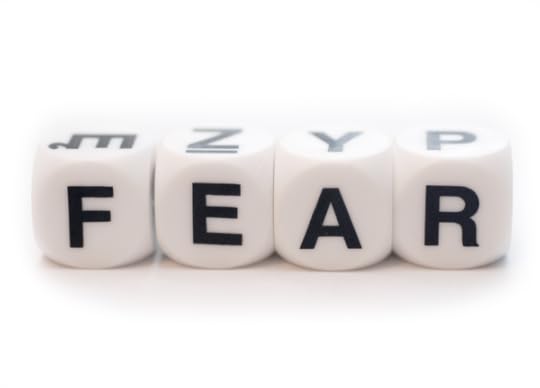
Fear as it pertains to BDSM is a complicated topic. People in the vanilla world hear the words "I fear punishment" from a submissive, and take it automatically to mean "I fear retribution from my abuser". There is a huge difference between those two statements and situations. First, a submissive should and normally does fear punishment. Not just for the physical pain caused if the punishment is a corporal one, but for the emotional feeling of having displeased their Dominant. The submissive should never fear their Dominant will really hurt them. The second statement implies an abusive relationship in which the person fears for their lives and fears permanent physical harm. In the first situation, consent has been given from the submissive to the Dominant to punish if necessary. In the second situation, consent was not given and the retribution is not wanted.

D/s relationships can create a closeness that vanilla relationship doctors would label "unhealthy" or "co-dependent". Some couples prefer to have extremely close, blended relationships and others prefer more distant partnerships. Attempting to have a close relationship with someone that is looking for a more distant one is a recipe for failure. Naturally, kinky people span this spectrum as much as vanillas. However, couples which identify themselves as Master/slave, owner/property, or even simply monogamous Dom/sub, tend to create their own world together, instead of a merely existing separately but maintaining a love connection.
Any sub or slave that is terrified and/or scared of their Dom is not in a BDSM relationship; they are in an abusive relationship. If you do something wrong and know there is going to be consequences and are prepared to accept them, that is a normal part of BDSM. But, if you are constantly walking on egg shells out of fear of doing something wrong, leave the relationship as fast as you can! You should do things for your Dom out of love, adoration and respect; but never out of shear terror.

A true Dom will earn your respect before even considering taking you on as a sub/slave. You should receive some sort of affirmation from your Dom, at least periodically such as "you please Me" or "you are doing well in your role as My sub/slave". I do realize that there are relationships where the slave is nothing more than a possession, but the sub/slave still must respect their Dom and do things out of a respect, not fear.

Fear, when felt, causes an adrenaline rush in the human body. This can make a person feel stronger, more aware of their environment, and even sexually aroused. Fear, when used in this manner, can indeed create a greatly satisfying encounter for the people involved. In this situation, fear is not detrimental. It is a heightening of responses in the participants. Within BDSM, a submissive may fear something new that they have not tried before, fear their own reactions to things, and fear the unknown. Take anyone and tie them up securely, blindfold them, and either lessen or remove their ability to hear, and the person will feel fear. This fear should not detract from the situation, but instead it should enhance it.

Remember, a BDSM relationship is not an abusive relationship. A Dom may "use and abuse" Their sub/slave just because they want to, but if she/he is constantly terrified of their Dom, they are in an abusive relationship. Trust your instincts. If you are afraid to be alone, just remember, there are plenty of true Doms out there and it's better to be alive in order to look for a true Dom, than end up hurt by an abusive person.

Let me hear your thoughts on the subject! Comment below!


Fear as it pertains to BDSM is a complicated topic. People in the vanilla world hear the words "I fear punishment" from a submissive, and take it automatically to mean "I fear retribution from my abuser". There is a huge difference between those two statements and situations. First, a submissive should and normally does fear punishment. Not just for the physical pain caused if the punishment is a corporal one, but for the emotional feeling of having displeased their Dominant. The submissive should never fear their Dominant will really hurt them. The second statement implies an abusive relationship in which the person fears for their lives and fears permanent physical harm. In the first situation, consent has been given from the submissive to the Dominant to punish if necessary. In the second situation, consent was not given and the retribution is not wanted.

D/s relationships can create a closeness that vanilla relationship doctors would label "unhealthy" or "co-dependent". Some couples prefer to have extremely close, blended relationships and others prefer more distant partnerships. Attempting to have a close relationship with someone that is looking for a more distant one is a recipe for failure. Naturally, kinky people span this spectrum as much as vanillas. However, couples which identify themselves as Master/slave, owner/property, or even simply monogamous Dom/sub, tend to create their own world together, instead of a merely existing separately but maintaining a love connection.

Any sub or slave that is terrified and/or scared of their Dom is not in a BDSM relationship; they are in an abusive relationship. If you do something wrong and know there is going to be consequences and are prepared to accept them, that is a normal part of BDSM. But, if you are constantly walking on egg shells out of fear of doing something wrong, leave the relationship as fast as you can! You should do things for your Dom out of love, adoration and respect; but never out of shear terror.

A true Dom will earn your respect before even considering taking you on as a sub/slave. You should receive some sort of affirmation from your Dom, at least periodically such as "you please Me" or "you are doing well in your role as My sub/slave". I do realize that there are relationships where the slave is nothing more than a possession, but the sub/slave still must respect their Dom and do things out of a respect, not fear.

Fear, when felt, causes an adrenaline rush in the human body. This can make a person feel stronger, more aware of their environment, and even sexually aroused. Fear, when used in this manner, can indeed create a greatly satisfying encounter for the people involved. In this situation, fear is not detrimental. It is a heightening of responses in the participants. Within BDSM, a submissive may fear something new that they have not tried before, fear their own reactions to things, and fear the unknown. Take anyone and tie them up securely, blindfold them, and either lessen or remove their ability to hear, and the person will feel fear. This fear should not detract from the situation, but instead it should enhance it.

Remember, a BDSM relationship is not an abusive relationship. A Dom may "use and abuse" Their sub/slave just because they want to, but if she/he is constantly terrified of their Dom, they are in an abusive relationship. Trust your instincts. If you are afraid to be alone, just remember, there are plenty of true Doms out there and it's better to be alive in order to look for a true Dom, than end up hurt by an abusive person.

Let me hear your thoughts on the subject! Comment below!

Published on October 08, 2013 14:20
BDSM: Good and Bad Fear
I was asked by a reader if it's normal for them to be afraid of their Dominant most of the time. She said that he used fear as means to control her. I advised her that fear is not normal in an everyday situation, but can enhance scenes or sexual play if used in a responsible way.
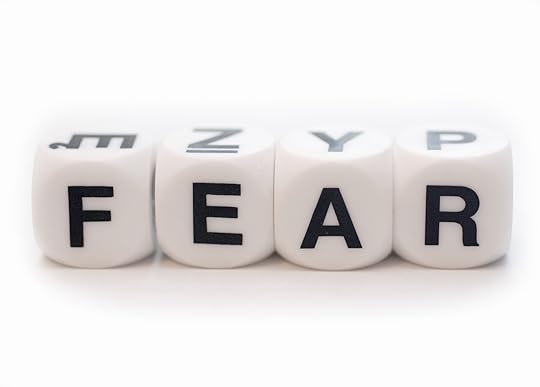 Fear as it pertains to BDSM is a complicated topic. People n the vanilla world hear the words "I fear punishment" from a submissive, and take it automatically to mean "I fear retribution from my abuser". There is a huge difference between those two statements and situations. First, a submissive should and normally does fear punishment. Not just for the physical pain caused if the punishment is a corporal one, but for the emotional feeling of having displeased their Dominant. The submissive should never fear their Dominant will really hurt them. The second statement implies an abusive relationship in which the person fears for their lives and fears permanent physical harm. In the first situation, consent has been given from the submissive to the Dominant to punish if necessary. In the second situation, consent was not given and the retribution is not wanted.
Fear as it pertains to BDSM is a complicated topic. People n the vanilla world hear the words "I fear punishment" from a submissive, and take it automatically to mean "I fear retribution from my abuser". There is a huge difference between those two statements and situations. First, a submissive should and normally does fear punishment. Not just for the physical pain caused if the punishment is a corporal one, but for the emotional feeling of having displeased their Dominant. The submissive should never fear their Dominant will really hurt them. The second statement implies an abusive relationship in which the person fears for their lives and fears permanent physical harm. In the first situation, consent has been given from the submissive to the Dominant to punish if necessary. In the second situation, consent was not given and the retribution is not wanted.

D/s relationships can create a closeness that vanilla relationship doctors would label "unhealthy" or "co-dependent". Some couples are prefer to have extremely close, blended relationships and others prefer more distant partnerships. Attempting to have a close relationship with someone that is looking for a more distant one is a recipe for failure. Naturally, kinky people span this spectrum as much as vanillas. However, couples which identify themselves as Master/slave, owner/property, or even simply monogamous Dom/sub, tend to create their own world together, instead of a merely existing separately but maintaining a love connection.
Any sub or slave that is terrified and/or scared of their Dom is not in a BDSM relationship; they are in an abusive relationship. If you do something wrong and know there is going to be consequences and are prepared to accept them, that is a normal part of BDSM. But, if you are constantly walking on egg shells out of fear of doing something wrong, leave the relationship as fast as you can! You should do things for your Dom out of love, adoration and respect; but never out of shear terror.

A true Dom will earn your respect before even considering taking you on as a sub/slave. You should receive some sort of affirmation from your Dom, at least periodically such as "you please Me" or "you are doing well in your role as My sub/slave." I do realize that their are relationships where the slave is nothing more than a possession, but the sub/slave still must respect their Dom and do things out of a respect, not fear.

Fear, when felt, causes an adrenaline rush in the human body. This can make a person feel stronger, more aware of their environment, and even sexually aroused. Fear, when used in this manner, can indeed create a greatly satisfying encounter for the people involved. In this situation, fear is not detrimental. It is a heightening of responses in the participants. Within BDSM, a submissive may fear something new that they have not tried before, fear their own reactions to things, and fear the unknown. Take anyone and tie them up securely, blindfold them, and either lessen or remove their ability to hear, and the person will feel fear. This fear should not detract from the situation, but instead it should enhance it.

Remember, a BDSM relationship is not an abusive relationship. A Dom may "use and abuse" Their sub/slave just because they want to, but if she/he is constantly terrified of their Dom, they are in an abusive relationship. Trust your instincts. If you are afraid to be alone, just remember, there are plenty of true Doms out there and it's better to be alive in order to look for a true Dom, than end up hurt by an abusive person.

Let me hear your thoughts on the subject! Comment below!

 Fear as it pertains to BDSM is a complicated topic. People n the vanilla world hear the words "I fear punishment" from a submissive, and take it automatically to mean "I fear retribution from my abuser". There is a huge difference between those two statements and situations. First, a submissive should and normally does fear punishment. Not just for the physical pain caused if the punishment is a corporal one, but for the emotional feeling of having displeased their Dominant. The submissive should never fear their Dominant will really hurt them. The second statement implies an abusive relationship in which the person fears for their lives and fears permanent physical harm. In the first situation, consent has been given from the submissive to the Dominant to punish if necessary. In the second situation, consent was not given and the retribution is not wanted.
Fear as it pertains to BDSM is a complicated topic. People n the vanilla world hear the words "I fear punishment" from a submissive, and take it automatically to mean "I fear retribution from my abuser". There is a huge difference between those two statements and situations. First, a submissive should and normally does fear punishment. Not just for the physical pain caused if the punishment is a corporal one, but for the emotional feeling of having displeased their Dominant. The submissive should never fear their Dominant will really hurt them. The second statement implies an abusive relationship in which the person fears for their lives and fears permanent physical harm. In the first situation, consent has been given from the submissive to the Dominant to punish if necessary. In the second situation, consent was not given and the retribution is not wanted. 
D/s relationships can create a closeness that vanilla relationship doctors would label "unhealthy" or "co-dependent". Some couples are prefer to have extremely close, blended relationships and others prefer more distant partnerships. Attempting to have a close relationship with someone that is looking for a more distant one is a recipe for failure. Naturally, kinky people span this spectrum as much as vanillas. However, couples which identify themselves as Master/slave, owner/property, or even simply monogamous Dom/sub, tend to create their own world together, instead of a merely existing separately but maintaining a love connection.

Any sub or slave that is terrified and/or scared of their Dom is not in a BDSM relationship; they are in an abusive relationship. If you do something wrong and know there is going to be consequences and are prepared to accept them, that is a normal part of BDSM. But, if you are constantly walking on egg shells out of fear of doing something wrong, leave the relationship as fast as you can! You should do things for your Dom out of love, adoration and respect; but never out of shear terror.

A true Dom will earn your respect before even considering taking you on as a sub/slave. You should receive some sort of affirmation from your Dom, at least periodically such as "you please Me" or "you are doing well in your role as My sub/slave." I do realize that their are relationships where the slave is nothing more than a possession, but the sub/slave still must respect their Dom and do things out of a respect, not fear.

Fear, when felt, causes an adrenaline rush in the human body. This can make a person feel stronger, more aware of their environment, and even sexually aroused. Fear, when used in this manner, can indeed create a greatly satisfying encounter for the people involved. In this situation, fear is not detrimental. It is a heightening of responses in the participants. Within BDSM, a submissive may fear something new that they have not tried before, fear their own reactions to things, and fear the unknown. Take anyone and tie them up securely, blindfold them, and either lessen or remove their ability to hear, and the person will feel fear. This fear should not detract from the situation, but instead it should enhance it.

Remember, a BDSM relationship is not an abusive relationship. A Dom may "use and abuse" Their sub/slave just because they want to, but if she/he is constantly terrified of their Dom, they are in an abusive relationship. Trust your instincts. If you are afraid to be alone, just remember, there are plenty of true Doms out there and it's better to be alive in order to look for a true Dom, than end up hurt by an abusive person.

Let me hear your thoughts on the subject! Comment below!

Published on October 08, 2013 14:20
October 3, 2013
Swinging, Swapping, Polysexuality, Polyamory-Polyamorus (or Poly) relationships
Researchers estimate that as many as 5 percent of Americans are currently in relationships involving consensual nonmonogamy — that is, permission to go outside the couple looking for love or sex.

The boundaries in these relationships are remarkably varied, with some couples negotiating one-off "swinging" or partner-swapping experiences and others forming stable bonds among three, four or five partners simultaneously. The latter is a version of polyamory, relationships in which people have multiple partnerships at once with the full knowledge of all involved.
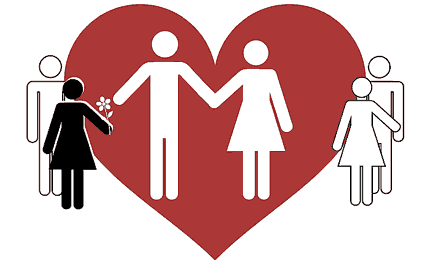
Swinging or partner swapping is a non-monogamous behavior, in which both partners in a committed relationship agree, as a couple, for both partners to engage in sexual activities with other couples as a recreational or social activity. Swinging can take place in a number of contexts, ranging from a spontaneous sexual activity at an informal social gathering of friends to planned or regular social gatherings to coupling with like-minded couples at a swingers' club.

The term wife swapping, once considered to be equivalent to "swinging", is now criticized as being androcentric and not accurately describing the full range of sexual activities in which couples may take part, but the term continues in use, and reflects the origins of the concept whereby husbands were viewed as initiating an informal partner swap.
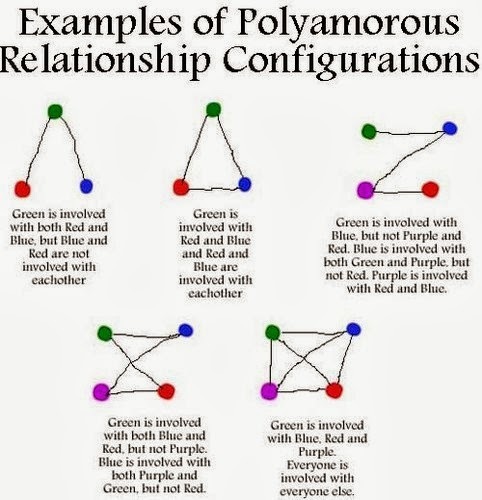
In our modern culture, swinging, or "mate-swapping" -- engaging in sexual activities with people outside your marriage -- is mostly seen as strange or deviant. But is it? And is it always a bad thing, or a sign of "trouble" in a marriage? Free love and sexual experimentation were pushed to the forefront in the 1960s, and we have all heard of the "key parties" of the 1970s. The current studies on swinging do not vary much from the studies of the past: married couples are still swinging for the same reasons, and both the benefits and negative effects don't seem to have changed much at all over the decades.

So who is doing all of this swinging? Studies have shown that demographically, swingers cut across all political identifications, come from the middle- to upper-class, have a higher degree of education, have white-collar jobs and are white and middle-aged.
The benefits of swinging include increased marital satisfaction. In a 2000 online survey of 1,092 swingers, Bergstrand and Williams found that communication, independence and relationship-revitalization were reasons people gave for why they continued to swing. The swingers studied also seemed to have higher general satisfaction and more excitement in their lives than non-swingers.

Polyamory, meaning "many" or "several" "love", is the practice, desire, or acceptance of having more than one intimate relationship at a time with the knowledge and consent of everyone involved. It is distinct from swinging (which emphasizes sex with others as merely recreational) and may or may not include polysexuality (attraction towards multiple genders and/or sexes).

Polyamory, often abbreviated as poly, is often described as "consensual, ethical, and responsible non-monogamy." The word is sometimes used in a broader sense to refer to sexual or romantic relationships that are not sexually exclusive, though there is disagreement on how broadly it applies; an emphasis on ethics, honesty, and transparency all around is widely regarded as the crucial defining characteristic.
The term "polyamorous" can refer to the nature of a relationship at some point in time or to a philosophy or relationship orientation (much like gender or sexual orientation). It is sometimes used as an umbrella term that covers various forms of multiple relationships; polyamorous arrangements are varied, reflecting the choices and philosophies of the individuals involved.

The concept of polyamory is often misunderstood by the general public and the media. Tell someone you are polyamorous and it conjures images for the average person of swing parties and clubs with people getting it on in dark corners or polygamous families with men controlling unhappy sister wives and lots of children. These images perpetuated by Hollywood are not polyamory, nor do they even represent the swing lifestyle or polygamy accurately. When it come to families and polyamory, there is even more confusion. Most people don't understand people when they say their children have been raised in a poly family.
Society largely associates swinging and polyamory as cheating. According to the dictionary, cheating means "fraud, deceit, swindling." In other words, cheating is to convey through deliberate action the impression that one is of a particular nature while one is, in fact, something quite different. What this boils down to with polyamory is that polyamorous people do not tell partners, lovers, or prospective members of those groups that they are monogamous when in fact they are not -- nor do they allow these people to assume they are monogamous, regardless of how convenient or personally advantageous such assumptions might be. The words "honest", "negotiate", "communication" and "being out" occur frequently in discussions of how polyamory usually works.

As you can see, just as in any BDSM relationship, complete honesty, negotiation, and communication seem to be key in having a long lasting and strong relationship. During my research, I came across many swingers and poly families that had been very happy for decades. I also found others that didn't last that long. Being a couple, swingers, or poly is no guarantee that you will always have a happy ending or continuation in your relationship.
So, now that you know the difference in swinging and polyamory, what are your thoughts? Let me hear from you below!

The boundaries in these relationships are remarkably varied, with some couples negotiating one-off "swinging" or partner-swapping experiences and others forming stable bonds among three, four or five partners simultaneously. The latter is a version of polyamory, relationships in which people have multiple partnerships at once with the full knowledge of all involved.

Swinging or partner swapping is a non-monogamous behavior, in which both partners in a committed relationship agree, as a couple, for both partners to engage in sexual activities with other couples as a recreational or social activity. Swinging can take place in a number of contexts, ranging from a spontaneous sexual activity at an informal social gathering of friends to planned or regular social gatherings to coupling with like-minded couples at a swingers' club.

The term wife swapping, once considered to be equivalent to "swinging", is now criticized as being androcentric and not accurately describing the full range of sexual activities in which couples may take part, but the term continues in use, and reflects the origins of the concept whereby husbands were viewed as initiating an informal partner swap.

In our modern culture, swinging, or "mate-swapping" -- engaging in sexual activities with people outside your marriage -- is mostly seen as strange or deviant. But is it? And is it always a bad thing, or a sign of "trouble" in a marriage? Free love and sexual experimentation were pushed to the forefront in the 1960s, and we have all heard of the "key parties" of the 1970s. The current studies on swinging do not vary much from the studies of the past: married couples are still swinging for the same reasons, and both the benefits and negative effects don't seem to have changed much at all over the decades.

So who is doing all of this swinging? Studies have shown that demographically, swingers cut across all political identifications, come from the middle- to upper-class, have a higher degree of education, have white-collar jobs and are white and middle-aged.
The benefits of swinging include increased marital satisfaction. In a 2000 online survey of 1,092 swingers, Bergstrand and Williams found that communication, independence and relationship-revitalization were reasons people gave for why they continued to swing. The swingers studied also seemed to have higher general satisfaction and more excitement in their lives than non-swingers.

Polyamory, meaning "many" or "several" "love", is the practice, desire, or acceptance of having more than one intimate relationship at a time with the knowledge and consent of everyone involved. It is distinct from swinging (which emphasizes sex with others as merely recreational) and may or may not include polysexuality (attraction towards multiple genders and/or sexes).

Polyamory, often abbreviated as poly, is often described as "consensual, ethical, and responsible non-monogamy." The word is sometimes used in a broader sense to refer to sexual or romantic relationships that are not sexually exclusive, though there is disagreement on how broadly it applies; an emphasis on ethics, honesty, and transparency all around is widely regarded as the crucial defining characteristic.
The term "polyamorous" can refer to the nature of a relationship at some point in time or to a philosophy or relationship orientation (much like gender or sexual orientation). It is sometimes used as an umbrella term that covers various forms of multiple relationships; polyamorous arrangements are varied, reflecting the choices and philosophies of the individuals involved.

The concept of polyamory is often misunderstood by the general public and the media. Tell someone you are polyamorous and it conjures images for the average person of swing parties and clubs with people getting it on in dark corners or polygamous families with men controlling unhappy sister wives and lots of children. These images perpetuated by Hollywood are not polyamory, nor do they even represent the swing lifestyle or polygamy accurately. When it come to families and polyamory, there is even more confusion. Most people don't understand people when they say their children have been raised in a poly family.
Society largely associates swinging and polyamory as cheating. According to the dictionary, cheating means "fraud, deceit, swindling." In other words, cheating is to convey through deliberate action the impression that one is of a particular nature while one is, in fact, something quite different. What this boils down to with polyamory is that polyamorous people do not tell partners, lovers, or prospective members of those groups that they are monogamous when in fact they are not -- nor do they allow these people to assume they are monogamous, regardless of how convenient or personally advantageous such assumptions might be. The words "honest", "negotiate", "communication" and "being out" occur frequently in discussions of how polyamory usually works.

As you can see, just as in any BDSM relationship, complete honesty, negotiation, and communication seem to be key in having a long lasting and strong relationship. During my research, I came across many swingers and poly families that had been very happy for decades. I also found others that didn't last that long. Being a couple, swingers, or poly is no guarantee that you will always have a happy ending or continuation in your relationship.
So, now that you know the difference in swinging and polyamory, what are your thoughts? Let me hear from you below!
Published on October 03, 2013 15:57
September 29, 2013
Sub Drop and Aftercare
Sub Drop can come in many different forms. Sub Drop is the emotional and physical affects of the release and drop of endorphins in the body after a play session. Since the increase of hormones and chemicals has produced a trance-like state (subspace), as play ends the submissive may feel out-of-body, detached from reality. As the sub's system stops producing morphine-like drugs, and as the nervous system kicks in again, the sub may feel a deep exhaustion, a sharp drop in temperature, as well as incoherence and uncoordinated.

Drop can also happen if play is stopped abruptly. BDSM play is a very vulnerable experience for people. It often involves exposing one's inner-self in ways that one has never before done. Sometimes, inexperienced Tops will begin BDSM play, and then abruptly terminate a scene and walk away. This can leave the abandoned sub in a very down state - feeling that they engaged their sense of trust to allow a Top to play with them, and that the Top simply let them splatter on the ground.

If not cared for, you could go into depression just from one play session. The endorphins and other hormones released during play leave your body in such a way that it takes time to rebuild the balance of hormones in your system. You could feel like you have a hangover or partied too hard the night before, you could feel lost and depressed for hours or days. You may just want to sleep it off. These are the more extreme forms of Drop. Some people recover in a matter of hours, but others could exhibit signs of Sub Drop for weeks after an intense session.

There are a few things that you can do to help you get through this time, should you experience it.
Recognize what it is. This is important, if you don't accept it for what it is, then you can talk yourself into a much worse state.Keep in contact with your play partner, tell them how you are feeling and seek reassurance from them that all is well. We all need to hear that we did good and that our partners enjoyed the scene as much as we did.Pamper yourself. Spend the day doing things you really enjoy. Long hot bubble bathes, manicures/pedicure, get your hair done. Anything that is going to help you feel better about yourself.Eat well and drink plenty of fluids. Your body is still in recovery process, so feed it well.Talk to someone who understands what you are going through. Find someone who can listen without judging and let it all out. If you need to cry do so, it's therapeutic.
Aftercare, at its most basic, simply involves the willingness to continue being there with your play partner for a sufficient time period that they can feel safe, regain their emotional equilibrium, and no longer feel the need to cling to you. It is equally important to recognize that aftercare is for both the Top and bottom, Dominant and submissive. If either person leaves too soon, then their partner may feel abandonment or loss far exceeding the obvious dimensions of the scene.
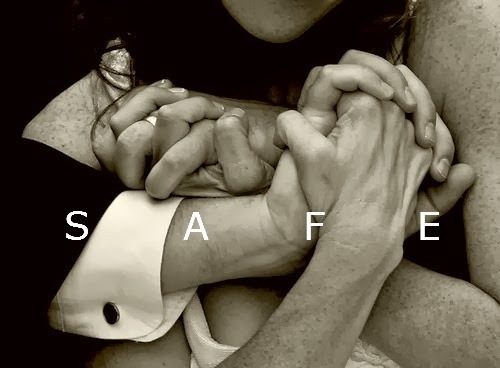
Food or drink after play can be important: Water or sports-type drinks to re-hydrate, or juice to provide simple sugars. Eating some chocolate after play is recommended by some, as the opiate and cannabinoid effects of chocolate are similar to those of subspace, allowing a more gradual transition, and chocolate also contains several stimulants that can make mental processes feel more alert.
Continuing to help the transition, especially if going home alone after play, some people find that assembling "aftercare supplies" helps them continue to land gently after they arrive home. Relaxing music, comfort objects, scented candles, bubble baths, favorite books or movies, incense, and other forms of self-pampering serve to continue to remind people that they are special and cared for, allowing them to bask in the gradually fading fires of their flight into subspace.

The emotions that can surface during and after play are necessary to address. Don’t keep them bottled up. Write them down, talk about them and keep open communication with your partner. They can help you get through your feelings. Several of the things in the Aftercare kit are meant to help you establish that connection. A notebook to write your feelings down, a phone card to call your partner (if they are long distance), a letter from your partner telling you how they feel about you and perhaps even a voice recording. Call up some friends and get out, if you have lifestyle friends they too can help you recover from sub drop.


Drop can also happen if play is stopped abruptly. BDSM play is a very vulnerable experience for people. It often involves exposing one's inner-self in ways that one has never before done. Sometimes, inexperienced Tops will begin BDSM play, and then abruptly terminate a scene and walk away. This can leave the abandoned sub in a very down state - feeling that they engaged their sense of trust to allow a Top to play with them, and that the Top simply let them splatter on the ground.

If not cared for, you could go into depression just from one play session. The endorphins and other hormones released during play leave your body in such a way that it takes time to rebuild the balance of hormones in your system. You could feel like you have a hangover or partied too hard the night before, you could feel lost and depressed for hours or days. You may just want to sleep it off. These are the more extreme forms of Drop. Some people recover in a matter of hours, but others could exhibit signs of Sub Drop for weeks after an intense session.

There are a few things that you can do to help you get through this time, should you experience it.
Recognize what it is. This is important, if you don't accept it for what it is, then you can talk yourself into a much worse state.Keep in contact with your play partner, tell them how you are feeling and seek reassurance from them that all is well. We all need to hear that we did good and that our partners enjoyed the scene as much as we did.Pamper yourself. Spend the day doing things you really enjoy. Long hot bubble bathes, manicures/pedicure, get your hair done. Anything that is going to help you feel better about yourself.Eat well and drink plenty of fluids. Your body is still in recovery process, so feed it well.Talk to someone who understands what you are going through. Find someone who can listen without judging and let it all out. If you need to cry do so, it's therapeutic.

Aftercare, at its most basic, simply involves the willingness to continue being there with your play partner for a sufficient time period that they can feel safe, regain their emotional equilibrium, and no longer feel the need to cling to you. It is equally important to recognize that aftercare is for both the Top and bottom, Dominant and submissive. If either person leaves too soon, then their partner may feel abandonment or loss far exceeding the obvious dimensions of the scene.

Food or drink after play can be important: Water or sports-type drinks to re-hydrate, or juice to provide simple sugars. Eating some chocolate after play is recommended by some, as the opiate and cannabinoid effects of chocolate are similar to those of subspace, allowing a more gradual transition, and chocolate also contains several stimulants that can make mental processes feel more alert.
Continuing to help the transition, especially if going home alone after play, some people find that assembling "aftercare supplies" helps them continue to land gently after they arrive home. Relaxing music, comfort objects, scented candles, bubble baths, favorite books or movies, incense, and other forms of self-pampering serve to continue to remind people that they are special and cared for, allowing them to bask in the gradually fading fires of their flight into subspace.

The emotions that can surface during and after play are necessary to address. Don’t keep them bottled up. Write them down, talk about them and keep open communication with your partner. They can help you get through your feelings. Several of the things in the Aftercare kit are meant to help you establish that connection. A notebook to write your feelings down, a phone card to call your partner (if they are long distance), a letter from your partner telling you how they feel about you and perhaps even a voice recording. Call up some friends and get out, if you have lifestyle friends they too can help you recover from sub drop.

Published on September 29, 2013 18:59
September 26, 2013
To Thine Own Self Be True (Our BDSM Life Style Declaration)
This above all: to thine own self be true, And it must follow, as the night the day, Thou canst not then be false to any man. - Shakespeare's Hamlet Act 1, scene 3, 78–82This quote from Shakespeare's play means
To be true to yourself. Live your life for yourself and do not let others try to influence you to do things you don't want to do.

Most of us have two distinctly different sides to our personalities. One side is what we show the world, our outer authentic self. The second is our inner authentic self. The inner self is the one that only those closest to us get to see in depth. Our outer authenticity is how well what we say and do matches what is really going on inside us. Our inner authenticity is how well we actually know ourselves and are aware of our inner states.
No one is fully authentic all of the time in their outer presentation. Sometimes we need to put on an act to get by. Some people spend more time living unauthentically than others. It is unpleasant and can be damaging to you if you are trapped in jobs or relationships where you rarely get the chance to be yourselves. If you are in this type of situation, you need to start thinking of ways to change your life as soon as possible so that you can be free to express yourself authentically.
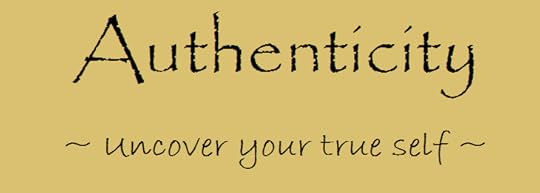
Surveys show that, on average, people who scored higher on tests for authenticity are more satisfied with life, have higher self-esteem and are generally happier. As Mohandas Gandhi put it so well, ‘happiness is when what you think, what you say, and what you do are in harmony’.
Most people living any form of a BDSM lifestyle are usually not out in the open with their lifestyle choice. Many feel they need to hide this part of themselves from their family and friends due to the moralistic views of society. Some of us are fortunate enough to be able to maintain/practice/live, in part or whole, some form of a BDSM relationship out in the open.
In all of my posts, I try to educate and guide my readers in different aspects of BDSM, but do not push them to live or practice it exactly the same way as we do. Below are two lists of what Padrone Marco and I believe in.

Within a BDSM Relationship:
Respect from both sides of a relationship at all times, during good times and disagreements are a must. Educate yourself on as many different parts of the lifestyle as you can, so you can discover which ones you like. Dominants should help their submissives to grow intellectually, not just in learning and performing their tasks and rules.Always be open and honest and never lie to your partner/s.Loyalty is a must for a true and lasting BDSM relationship.Understanding and flexibility from both sides are needed.There has to always be 2 way communication.Submissives will and do have the right to anger, sadness, or jealousy. But, do not act blindly on these and talk out any and all problems with your Dominant.Emotional support and growth should be nourished always and deeply from both the Dominant and submissive.Having and maintaining patience is a must! Talking and discussing problems in a calm manner versus yelling and screaming at each other.
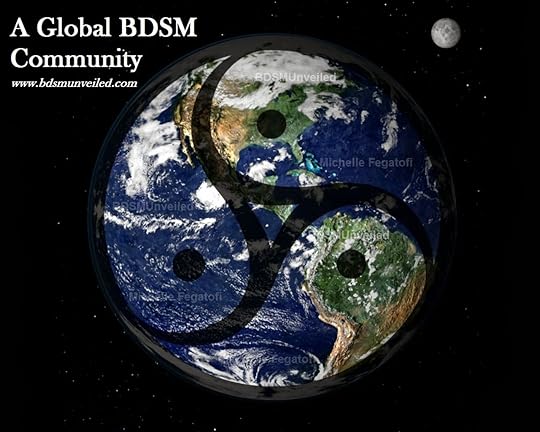
Globally in the BDSM Community:
Respect and honesty between others in the BDSM Lifestyle as a community.Never judge how others decide to live a BDSM lifestyle by your own standards, because there is no wrong way as long as it's consensual. Even if you don't agree or practice it their way.Respecting differing opinions and not causing conflict within our own community.Helping other people to grow and understand the BDSM Lifestyle from our own experiences and from the way we live it, but leaving the road open so that others can form their own journey. Standing up for the BDSM community rights to be seen and heard, while fighting the moralistic movement that would put us back in the closet.We take the above list very seriously and live by them every day. This post is a clarification for all of our readers in an effort to help you understand where our thinking comes from and why we choose to post the things we do. We use this blog to spread the beauty of the BDSM Lifestyle to those that do not know the real meaning of it, to help educate the curious and new people, as well as to promote a more open policy about living a BDSM Lifestyle in the open versus hiding in the closet.

We hope you continue to follow us and the education we hope to spread through our blogs and books by returning and reading us every day. Thank you for your continued support and we hope that our articles and peaks inside our own lives help you broaden your own knowledge of the Lifestyle.
Padrone Marco and Michelle Fegatofi
To be true to yourself. Live your life for yourself and do not let others try to influence you to do things you don't want to do.

Most of us have two distinctly different sides to our personalities. One side is what we show the world, our outer authentic self. The second is our inner authentic self. The inner self is the one that only those closest to us get to see in depth. Our outer authenticity is how well what we say and do matches what is really going on inside us. Our inner authenticity is how well we actually know ourselves and are aware of our inner states.
No one is fully authentic all of the time in their outer presentation. Sometimes we need to put on an act to get by. Some people spend more time living unauthentically than others. It is unpleasant and can be damaging to you if you are trapped in jobs or relationships where you rarely get the chance to be yourselves. If you are in this type of situation, you need to start thinking of ways to change your life as soon as possible so that you can be free to express yourself authentically.

Surveys show that, on average, people who scored higher on tests for authenticity are more satisfied with life, have higher self-esteem and are generally happier. As Mohandas Gandhi put it so well, ‘happiness is when what you think, what you say, and what you do are in harmony’.
Most people living any form of a BDSM lifestyle are usually not out in the open with their lifestyle choice. Many feel they need to hide this part of themselves from their family and friends due to the moralistic views of society. Some of us are fortunate enough to be able to maintain/practice/live, in part or whole, some form of a BDSM relationship out in the open.
In all of my posts, I try to educate and guide my readers in different aspects of BDSM, but do not push them to live or practice it exactly the same way as we do. Below are two lists of what Padrone Marco and I believe in.

Within a BDSM Relationship:
Respect from both sides of a relationship at all times, during good times and disagreements are a must. Educate yourself on as many different parts of the lifestyle as you can, so you can discover which ones you like. Dominants should help their submissives to grow intellectually, not just in learning and performing their tasks and rules.Always be open and honest and never lie to your partner/s.Loyalty is a must for a true and lasting BDSM relationship.Understanding and flexibility from both sides are needed.There has to always be 2 way communication.Submissives will and do have the right to anger, sadness, or jealousy. But, do not act blindly on these and talk out any and all problems with your Dominant.Emotional support and growth should be nourished always and deeply from both the Dominant and submissive.Having and maintaining patience is a must! Talking and discussing problems in a calm manner versus yelling and screaming at each other.

Globally in the BDSM Community:
Respect and honesty between others in the BDSM Lifestyle as a community.Never judge how others decide to live a BDSM lifestyle by your own standards, because there is no wrong way as long as it's consensual. Even if you don't agree or practice it their way.Respecting differing opinions and not causing conflict within our own community.Helping other people to grow and understand the BDSM Lifestyle from our own experiences and from the way we live it, but leaving the road open so that others can form their own journey. Standing up for the BDSM community rights to be seen and heard, while fighting the moralistic movement that would put us back in the closet.We take the above list very seriously and live by them every day. This post is a clarification for all of our readers in an effort to help you understand where our thinking comes from and why we choose to post the things we do. We use this blog to spread the beauty of the BDSM Lifestyle to those that do not know the real meaning of it, to help educate the curious and new people, as well as to promote a more open policy about living a BDSM Lifestyle in the open versus hiding in the closet.

We hope you continue to follow us and the education we hope to spread through our blogs and books by returning and reading us every day. Thank you for your continued support and we hope that our articles and peaks inside our own lives help you broaden your own knowledge of the Lifestyle.
Padrone Marco and Michelle Fegatofi

Published on September 26, 2013 06:38




